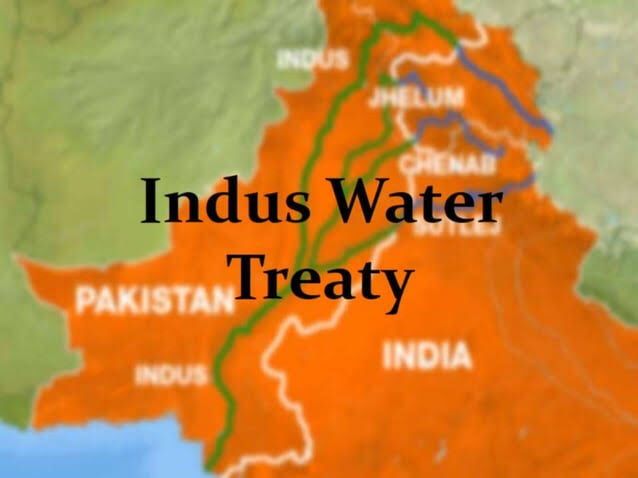Islamabad has so far opposed New Delhi’s proposal to renegotiate a six-decade-old water-sharing deal as the effects of climate change intensify and water security becomes a rising issue in both Pakistan and India. According to Pakistani policymakers, New Delhi is menacing Pakistan with unilateral treaty amendments if Islamabad doesn’t give in to its aspirations and plans on the Indus River and its tributaries. The Indian strategy is extremely hazardous and may result in conflict with long-term consequences for both India and Pakistan.
Indus Water Treaty is a unique water distribution agreement that has prevented major wars between two states but India and Pakistan are now facing several challenges and complexities. It is considered a remarkable effort since it has encountered several tensions in the South Asian region while providing the basis for the headway of irrigation and hydropower for more than 50 years. It is an agreement between India and Pakistan signed over six decades ago to avoid any sort of conflict on the usage of water resources. In September 1960, the treaty was signed by both countries along with World Bank as the third participant in this agreement. Under this agreement, the Indus River which mainly flows from India but falls into Pakistan is distributed between both countries. India is given control of the eastern rivers which include Ravi, Sutlej, and Beas, while Pakistan has got control over the western rivers which include the Jhelum, Chenab, and Indus.
While this treaty has helped to prevent major water conflicts between the two countries, it has faced numerous challenges over the years which include increasing water demands of states, climate change and different controversial water projects which threaten its stability. One of the major issues facing the Indus Water Treaty (IWT) is the construction of dams and hydropower projects by India on the western rivers, which has raised concerns among Pakistan about the impact on the water flow downstream. Kishan Ganga and Ratle Hydropower projects are the two projects of India on the western rivers (Chenab and Jhelum) whose control is given to Pakistan. Pakistan has raised some technical objections on the height, bondage, intake and freeboard of both of these projects. Pakistan asserts that as India was permitted IWT of building run-of-the-river hydel projects on western rivers which does not cause depletion of water level downstream and also will not change the river course but the Kishan Ganga hydro project is violating both of these conditions resulting in reduced water flow downstream and changing the river course. Pakistan alleges that since these rivers provide water to 80 percent of Pakistan’s farmers’ fields India is violating the Indus Basin Treaty by building projects like the Kishan Ganga and Ratle Hydro Projects. India has argued that the projects are run-of-the-river which do not have the storage of water and are entirely compliant with the terms and conditions of IWT.
This raises a challenge in the implementation of this treaty as both parties interpret the various clauses differently which can cause disputes between the signatories. On the issue of these hydro projects, two parallel procedures were underway for resolving this dispute. First, by appointing a neutral expert as Indis call for and secondly, by appointing the Chairman of the International Court of Arbitration as appealed by Pakistan. World Bank suspended both of these procedures in 2016 but this year in February, World Bank states that it is in favor of running this process again. But if both procedures running together give a conflicting decision on this dispute, the future of IWT will be in jeopardy.
India has sent Pakistan a notice to agree to a modification of this treaty bilaterally without the involvement of any third party. India sent this notice to Pakistan just two days before the start of proceedings in the court of arbitration in Hague which it has boycotted early. Pakistan said that the treaty cannot be unilaterally modified and this act of sending a notice by India to Pakistan is an act of diverting attention from the proceedings of the court of arbitration.
India is of the view that no third party should intervene in this dispute and both countries should solve this issue bilaterally. But what is the surety that this dispute can be successfully settled? As in history, both of the states have agreed in the Shimla agreement that the Kashmir dispute is a bilateral issue that should be solved without the involvement of any third party. But we can see that the Kashmir issue still exists and even getting more complex. The tension between both nations is getting increased and both have failed to agree on any term, thus failing to resolve the issue. So, there is no guarantee that if Pakistan would agree to the offer of solving this treaty issue bilaterally, it can be completely resolved.
The resolution of this water dispute is necessary for the future of both countries. Currently, there is a pressing issue of water scarcity in Pakistan, with the country experiencing a continuous decrease in water resources. According to a report by the Pakistan Institute of Development Economics, more than eighty percent of Pakistan’s population is facing severe water shortage for at least one month every year. In this report, Pakistan is ranked 14th out of the 17 countries which are “extremely high water risk” nations. If this situation persists, there is a prediction that the entire country would face water scarcity by the year 2025.
Pakistan has not taken significant steps to address the water scarcity problem, resulting in millions of gallons of water being wasted and flowing into the sea. This negligence may lead to severe consequences, such as the desolation of fields and gardens due to a shortage of water, and the collapse of the sugar industry without sugarcane fields. In addition, the availability of electricity for both industries and households may also be affected. The water level in the country may drop significantly, or as seen during recent floods, may rise suddenly due to heavy rainfall which has badly affected the people as well as the economy of the country. Meanwhile, India, with more water resources, may potentially divert its excess water to Pakistan. Moreover, from a defense point of view, Pakistan is vulnerable to water-based attacks by India. The Pakistani government must take proactive measures to address these issues and ensure the efficient use and storage of water resources.
Although the construction of large dams like Bahasa is in progress, there is also a dire need for small dams at present. The Kala Bagh Dam is an excellent project, but it is far away, and if the government can build and maintain it with updates, it would be advantageous for our country. Last year, when floods hit Pakistan which caused huge destruction in different areas of the country and also heavily cost its economy if this dam was constructed on time, the country could be saved from this flood situation and the water saved in the dam could also be utilized for power generation.
Due to climate change and several other factors different natural resources are depleting in which water is the most important resource without which no one can live. This treaty which is distributing water from the Indus Basin system between India and Pakistan should not be ended as it can create a conflict even a war could be escalated between India and Pakistan. Both countries should try to fully implement the terms of this treaty and should not build any projects which are contradictory to the terms of the treaty. With the full implementation of this treaty, both nations can peacefully use the water of this Indus River System. Pakistan should not fall for the trap if Modi decides it is essential to use such hazardous language for political purposes. Islamabad should refrain from acting with the same animosity towards India. The two nations shouldn’t end the secret negotiations that were going on months ago. Open lines of communication are necessary for discourse to succeed.







